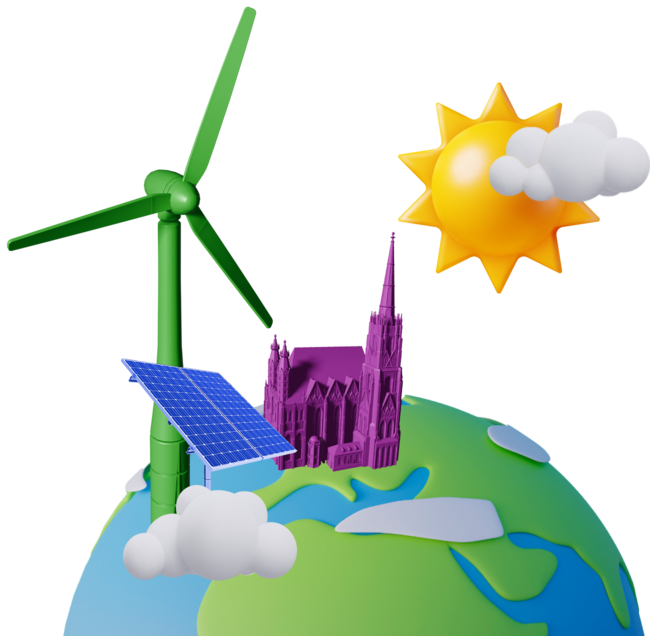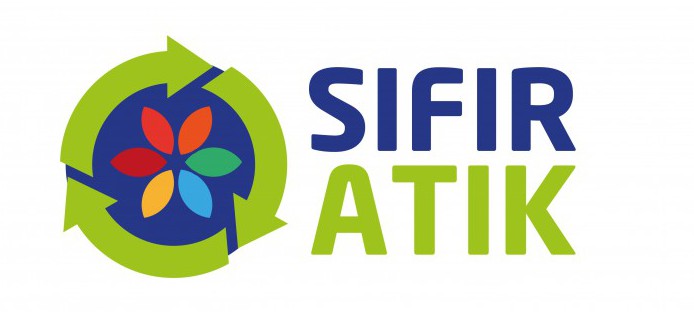


Towards a Better Future.
We care about our world. For a better future We are trying to create a sustainable transformation.
Solution partner of global brands and one of the fiber producers of our country We wholeheartedly believe that we make a difference and that we can lead the change. We believe. Making design and production sustainable in every aspect introducing sustainability transformation of the fashion industry will support. Therefore, as a company, our goals and We always base our values on economic, social and environmental sustainability. We determine our activities within the framework of We are carrying out. In addition to supplying ethical products in all our processes, Invests in human resources for lifelong sustainability, To use environmentally friendly practices in all areas of our business we are working.

The definitions of the terms Regenerate, Recycle and Upcycle in textile recycling terminology are given below;
Regenerated Fiber: Recycling of used clothes and garment waste by mechanical disintegration fibers obtained after
Regenerated Yarn: Consisting of virgin and regenerated fiber (polyester, acrylic, cotton, etc.) blends and suitable for end use. These are the threads produced as.

Recycle: It is the re-evaluation of a used product or its inclusion in the life cycle for use. Textile In its terminology, it generally refers to the recycling of PET bottles or similar thermoplastic polymers by the extrusion method. does.
Recycle PET Fiber: PET bottles and packaging that are cleaned by washing with chemical methods and shredded by mechanical methods PET flakes obtained from waste are transformed into fiber through thermal processes.

Upcycle: A used product or process waste is converted from an existing product for re-evaluation or use. transforming it into a product with higher added value.

The Sustainable Development Goals address the environmental, social and economic challenges facing the world today. A guide that provides a list of actions to be taken to combat and overcome these challenges It has the nature of In this article, we will discuss what the Sustainable Development Goals mean, their history, why they are important and You can find information about its impact on the cement industry.
The United Nations Sustainable Development Goals (SDGs) address a wide range of sustainable development challenges, It is a set of 169 sub-items combined with 17 objectives at the top. SDGs United Nations member They create a framework within which states' development agendas can be designed and delivered. These purposes are not only national It is not about states. While framing the Sustainable Development Goals issues, it also helps industries, civil social, environmental and economic impacts to community organizations and individuals to limit the negative and increase the positive. They provide a guide in managing
The Sustainable Development Goals are unique in that they cover issues that affect us all. nobody To build a more sustainable, safer, more prosperous planet for all humanity, without leaving anything behind It invites every member of society to the process on its behalf. Although 17 different objectives are defined in this context, they are not interrelated. are nested steps that overlap and are considered interrelated
The 17 Sustainable Development Goals given in Figure 1 have three main objectives:

Recycling rates of packaging waste are at 80% in northern and western European countries. Also other Since it is collected without being contaminated with household waste, the quality of recyclable materials is at the highest level. In Türkiye, only 20% of the packaging waste consumed can be recycled. These are also legal Although it is prohibited, it is collected manually by street collectors, called rickshaw drivers. Back The remaining 80% is doomed to be buried in the ground due to wild storage. So in short Our country treats our waste as garbage. Currently, throughout Türkiye, a total of Approximately 10% of the waste, i.e. 8,000 tons, can be separated. These separated wastes can be used in other domestic and organic wastes. Since it is heavily contaminated with waste, poor quality products are obtained. Especially waste papers, when wet Since they are unusable, they lose their recycling ability. For this reason, our country It is forced to import the paper required for its needs from abroad.
All waste is collected correctly from homes or waste collection centres, sent to the correct processing centres. If it is delivered and subjected to the separation process, it will be one year from our waste that we perceive as garbage today. A new resource of approximately 5 billion USD will be created. With correct waste management, 1,000 tons per day in Turkey PET bottles can be collected or 10% of Turkey's energy needs or 50% of its fertilizer needs can be obtained from waste. can be done. On the one hand, we protect our country's resources from environmental pollution and groundwater pollution, and on the other hand, By reducing the import of plastics, which are petrochemical derivatives, the current account deficit will be closed, thus contributing to the national economy. We contribute.
According to the Ministry of Environment and Urbanization of the Republic of Turkey in 2017 The "Zero Waste" project initiated by the company is an important step in this regard. But In addition, collection in waste management that needs to be prepared and separation master plan, trained and authorized waste collectors and the curriculum in primary and secondary schools that will support this We need at least 1 hour of training per week to be included. Receiving environmental waste management training for 1 hour per week at school When our children go home, they ask their parents to sort waste. the idea of recycling by warning against mistakes made at the point of They can contribute to the maturation


Trend in the world with recycling of textile and packaging waste and preferred by sensitive consumers. Creating recycled textile and packaging products It is important both economically and environmentally. from organic waste methane produced by digesting method (gasification) Obtaining energy from gas is another important issue. This The amount of energy that can be produced this way is approximately 1,500 MW. this too In this way, we can supply a certain part of Turkey's electrical energy needs. will ensure it is met. Additionally, obtaining energy from organic waste It enables clean energy production. organic waste The digested waste generated after gasification is used as fertilizer. It is an important resource for agricultural production, which is gradually weakening, as it can be used will be the source. However, this fertilizer, which is all organic, is of good quality. The most important criterion to obtain from other plastic and metal waste is that it is separated.